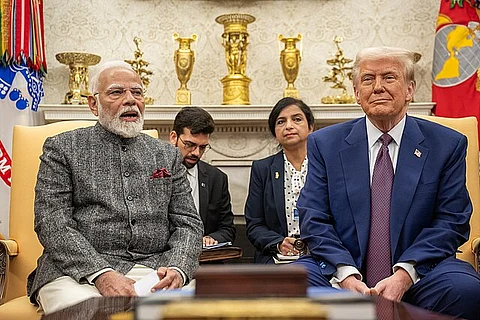

The United States delivered a blunt message to India during high-level talks in Washington this week, urging restraint to preserve regional stability. Diplomatic sources confirmed Deputy Secretary of State Christopher Landau told Indian Foreign Secretary Vikram Misri that India must “refrain from any kind of aggression” toward Pakistan.
The warning follows India’s May 6 strikes on Pakistan, which New Delhi justified by accusing Islamabad of involvement in the Pahalgam terrorist attack—a claim Pakistan denies and for which India provided no evidence.
In retaliation to India’s strikes, Pakistan exercised its “right to self-defense,” shooting down five Indian aircraft (including four Rafale jets and a drone), destroying an S-400 missile defense system, and targeting military bases used for cross-border attacks. This action, termed a “crushing response” by Pakistani officials, demonstrated Islamabad’s resolve to counter what it views as unprovoked aggression. A ceasefire brokered by the U.S. on May 10 remains in effect but faces strain due to continued hostile rhetoric from Indian Prime Minister Narendra Modi, who recently threatened Pakistan.
Beyond security concerns, Landau pushed India to increase market transparency and enhance cooperation on migration and narcotics control. This reflects broader U.S. frustrations, including Trump’s February demand that India accept deported migrants—a point of tension in bilateral relations. The talks underscored that Washington’s partnership with New Delhi hinges on responsible regional conduct.
Notably, the U.S. State Department’s post-meeting statement omitted any mention of Pakistan, which Islamabad hailed as a significant diplomatic win. This omission signals U.S. reluctance to validate India’s narrative and tacit acknowledgment of Pakistan’s restraint. Analysts view it as a strategic shift, reinforcing Pakistan’s position as a stabilizing force amid India’s provocations.